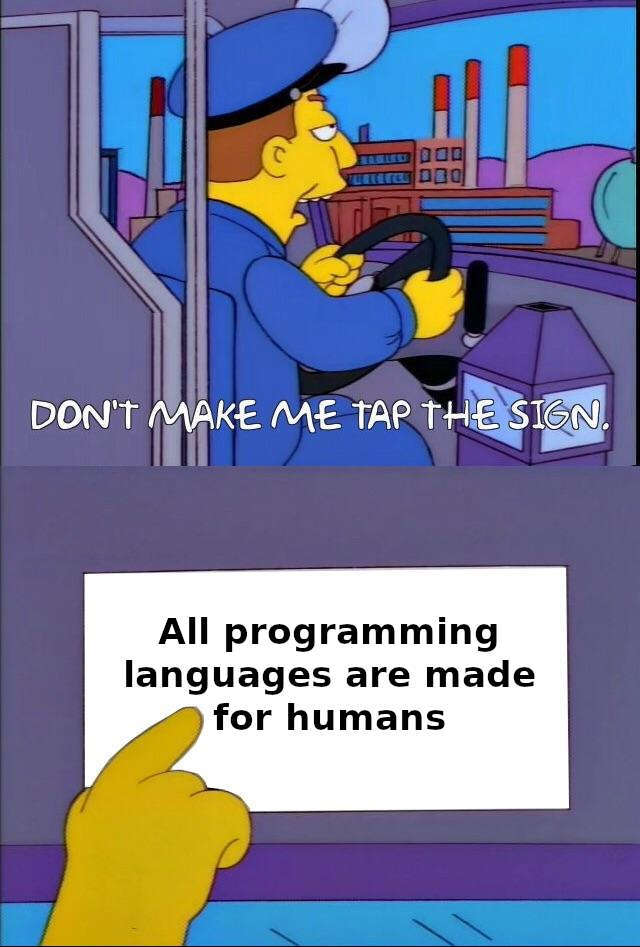this post was submitted on 07 Feb 2025
440 points (94.9% liked)
memes
12042 readers
2411 users here now
Community rules
1. Be civil
No trolling, bigotry or other insulting / annoying behaviour
2. No politics
This is non-politics community. For political memes please go to !politicalmemes@lemmy.world
3. No recent reposts
Check for reposts when posting a meme, you can only repost after 1 month
4. No bots
No bots without the express approval of the mods or the admins
5. No Spam/Ads
No advertisements or spam. This is an instance rule and the only way to live.
A collection of some classic Lemmy memes for your enjoyment
Sister communities
- !tenforward@lemmy.world : Star Trek memes, chat and shitposts
- !lemmyshitpost@lemmy.world : Lemmy Shitposts, anything and everything goes.
- !linuxmemes@lemmy.world : Linux themed memes
- !comicstrips@lemmy.world : for those who love comic stories.
founded 2 years ago
MODERATORS
you are viewing a single comment's thread
view the rest of the comments
view the rest of the comments

I've kinda noticed this block when working with non-developers attempting low-code and no-code platforms. Anecdotally, non-coders tend to assume that knowing how to code is the hard part of software development. It's really not though, there's tons of resources to learn any language you want for free, and cs students cover all of the basics in their first year. The actually hard part (well one of them) is knowing what to code: the data structures and algorithms. Pro_code, low-code, or no-code, there's just no way around not knowing how to design a working, efficient algorithm or a clean, scalable database schema. Ironically, for anything but the most trivial problems, the lack of maturity in low-code platforms tends to only make the algorithm harder to implement.